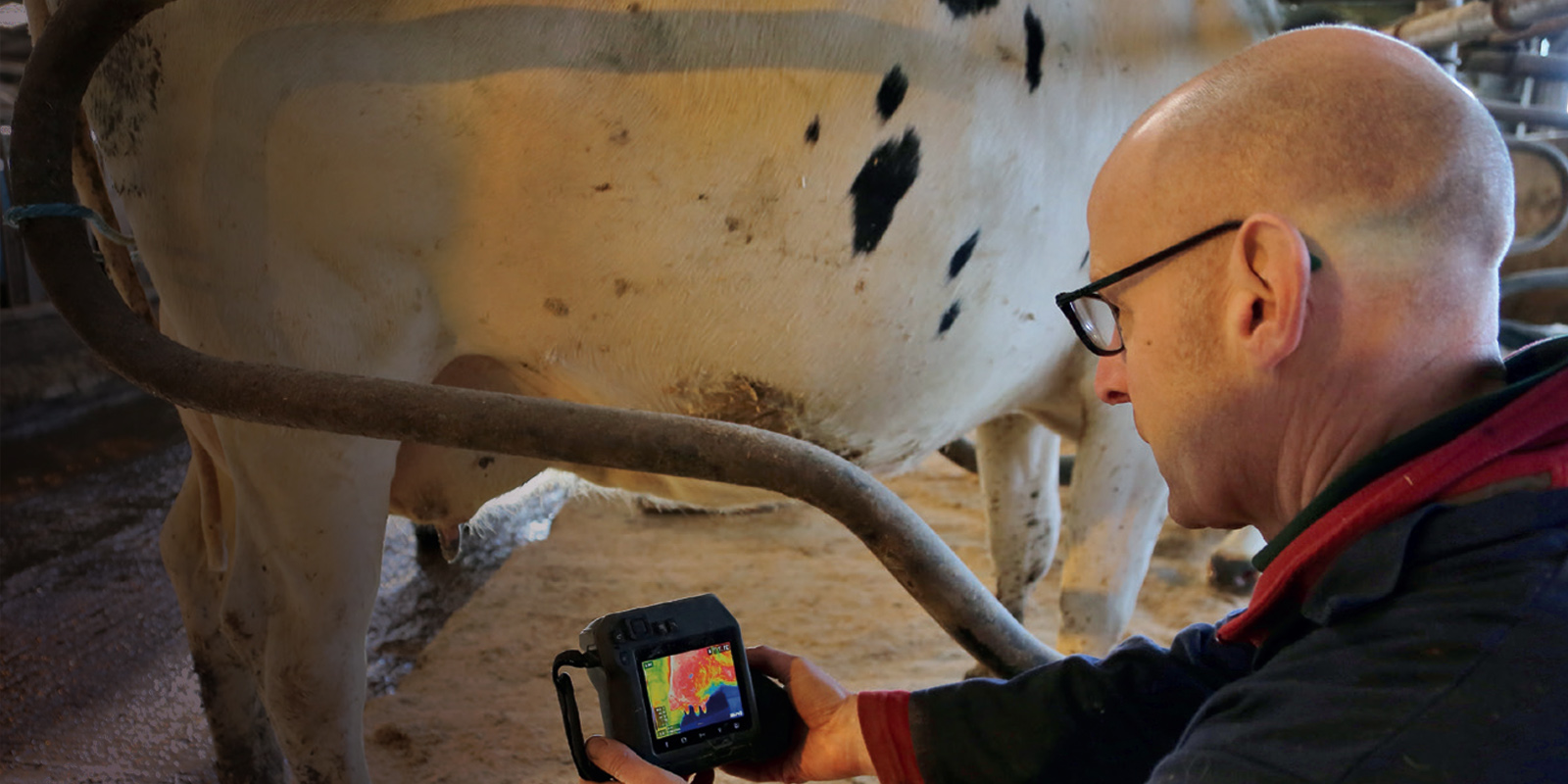
Scotland’s Rural University College
Managing the environmental impact of dairy cattle
Methane emissions from cattle are increasing and are known to be a significant factor in global warming. The College’s cattle breeding experiment, which is the world’s largest of its kind, comprises two genetic lines for the study of milk yield and aims to set new breeding goals to produce cows of ‘high genetic merit’ with the potential to reduce methane greenhouse gases by an estimated 24%.
With over 40 years of breeding research, the College maintains an important dairy research herd and was the first to make use of body condition scores in dairy herds in national genetic evaluations to provide indicators such as fertility. The College’s research capability also opened up other new lines of research including the effect of weather on milk yield, international advances in diary genetic improvement and dairy herd management.
Genetic improvement in British dairy cattle over the last twenty years is estimated by experts to have been worth £2.4bn to the economy of which £400bn is attributable to the Profitable Lifetime Index, an innovation generated by the College.
